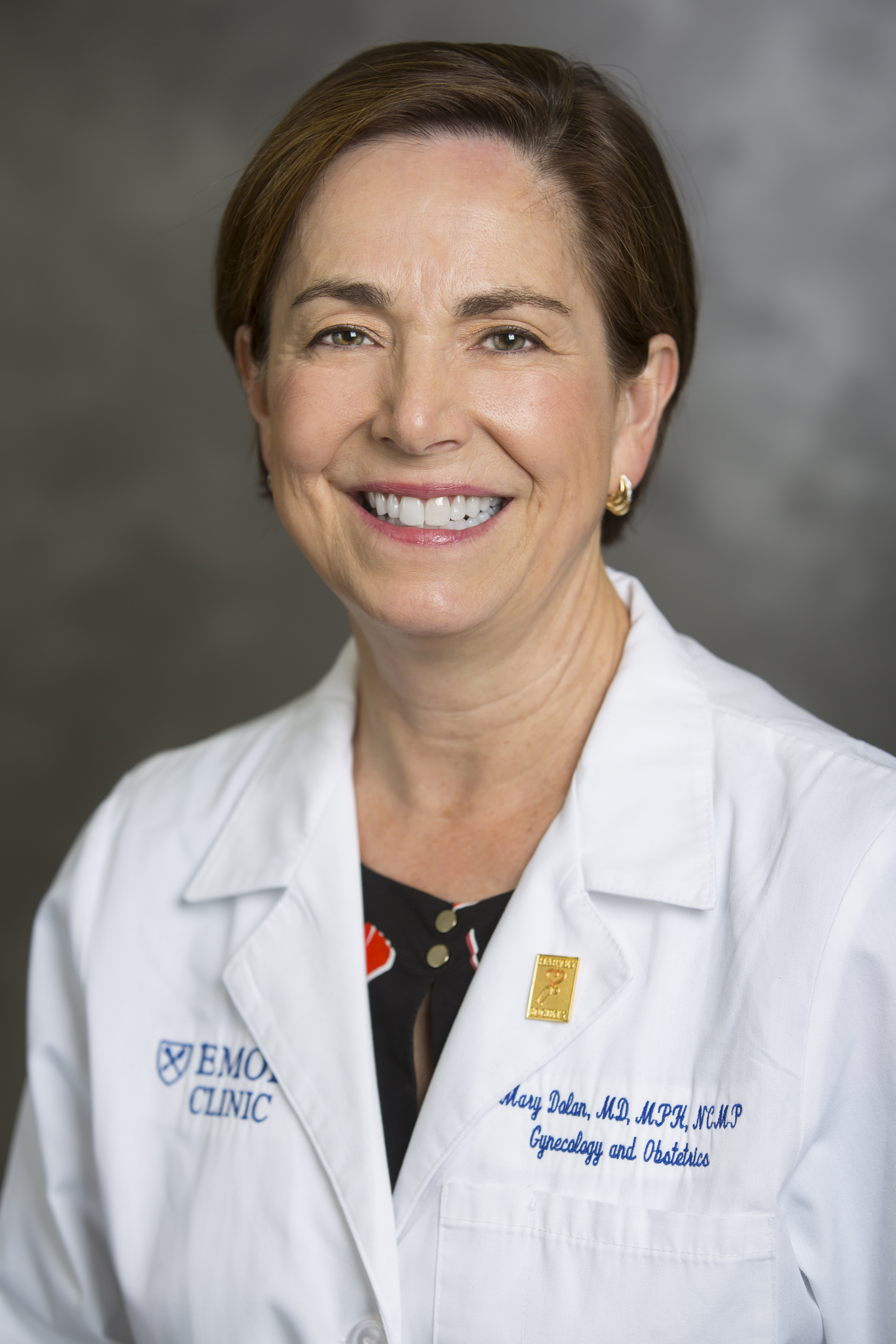Making the Most out of the Transition to Menopause

If you need proof that menopause used to be a "taboo" topic of conversation, ask your mother about her experience.
Or, depending on your age, what her mother told her. That absence of information can lead to misunderstanding, myth and uncertainty about a very natural phase of a woman’s life.
“Women enter menopause ill-prepared,” says Taniqua Miller, MD, obstetrician and gynecologist at Emory Healthcare. “They don’t really understand what is happening in their bodies or that it’s a natural phase of life. They often perceive their symptoms as abnormal or believe that they are losing their youth. The reality is that one-third of our lives are spent post-menopausal and that can be a wonderful, rewarding time in life.
“The first thing I do is to validate their experience and let them know that what’s happening to them happens to a lot of other women,” Dr. Miller continues. “My hope is that I can help women see menopause as a transition – something that is temporary – and make it a natural, easy process.”
Mary Dolan, MD, MPH, obstetrician and gynecologist at Emory Healthcare sees the same mindset in her patients. “Women in perimenopause are looking back to their youth, and not forward to their lives ahead,” she shares. “They think there’s nothing left to look forward to”, and that’s not the case at all. We work closely with all our patients to help them get through this phase of aging and look forward to the experiences and adventures they can still enjoy thanks to the treatments and approaches available to better manage their symptoms.
“Menopause is an exciting time – one every woman should look forward to and embrace,” she says.
Removing the stigma
“Menopause is a fascinating biological and psychological convergence in a woman’s life,” explains Dr. Dolan. “Besides birth and death, it’s one of the most important phases of her life: Her physiology is changing, and her identity is likely changing, too: Children may be moving away, her parents are aging, her relationship with her partner is evolving, and her career may be demanding.” That is a lot to juggle along with all of the physiologic changes.
“All of these things are going on, and it can be very dramatic,” Dr. Dolan adds. “Talking to a gynecologist can help her understand the biology of what’s happening and create a plan to manage symptoms.”
Many of the women Dr. Dolan and Dr. Miller see are surprised to learn that the transition to menopause is a dynamic continuum and happens over several years.
Perimenopause usually starts between the ages of 40 and 45. It’s generally marked by changes in her periods- (more or less often, heavier or lighter, shorter or longer) and symptoms including irritability, mood swings, changes in sleep patterns, anxiety, vaginal dryness, hot flashes and night sweats. The symptoms are usually more bothersome during perimenopause than after menopause.
Menopause is the natural cessation of menstruation (no period for a year) and usually occurs between the ages of 45 and 55.
Women are considered post-menopausal one year after their final period.
Expert care tailored to your changing needs
Once women understand what’s happening to their bodies, it’s easier for them to seek care. Dr. Dolan’s first step in working with women who may be in perimenopause is to rule out any other medical conditions.
“Many common symptoms of menopause, including sleep changes, weight gain, vaginal dryness, pain during intercourse or even some chest symptoms, can also signal serious medical conditions,” explains Dr. Dolan. “I often order more tests or refer patients to other specialists to rule out more serious conditions. It gives us a better picture of their health and is an excellent starting point to create a personal plan to manage symptoms.”
Women today have a knowledge their moms and grandmothers did not. Medical advancements and deeper understanding of what happens in the body during menopause make finding an approach that works for them easier.
Some providers, including Dr. Dolan and Dr. Miller, are members of the North American Menopause Society (NAMS) and have additional certification. This demonstrates their commitment to furthering their knowledge and improves their ability to offer patients proven, tailored approaches to care.
“We have a goal-orientated approach to treatment,” explains Dr. Miller. “We listen closely to what women are telling us – including their symptoms, their goals and their lifestyles – and have a deeper arsenal of options to help them instead of a cookie-cutter approach.”

"The reality is that one-third of our lives are spent post-menopausal and that can be a wonderful, rewarding time in life."
Taniqua Miller, MD
NAMS providers have access to training and the latest advances in caring for women making the transition to menopause. That includes managing symptoms such as sleep disturbances, therapy, mood swings and issues with bone health.
Research also digs into more severe or less common symptoms.
“One really exciting area of study right now is on hypoactive sexual desire disorder,” shares Dr. Miller. The disorder is characterized by a lack of desire for sexual activity. “There’s medication up for review to help women suffering from this condition, which is a condition not widely discussed. NAMS is dedicating time at our next conference to better understand the symptoms and how we can better help women with the disorder.”
Dr. Miller also credits NAMS with her ability to offer comprehensive care for menopause. “We are committed to maximizing a woman’s health to give her the best quality of life possible before, during and after the menopausal transition.”
“NAMS isn’t just a group of OB-GYNs,” adds Dr. Dolan. “It’s cardiologists, endocrinologists, internists, psychologists and many other providers who come together to research, present and write literature, all to help women during and after menopause. We approach care from a multidisciplinary angle, sharing ideas and experience, to make sure women have access to the best possible care.”
The providers at Emory work closely with their patients to guide them to the support and treatment they need to maximize their quality of life throughout the transition. That may include sharing proven evidence on hormone replacement therapy and helping women decide if it’s right for them.
“Media coverage from more than a decade ago really did a disservice to hormone replacement therapy,” says Dr. Dolan. “It created a lot of misunderstanding and fear about the safety and effectiveness of hormone replacement therapy. We know that this type of therapy can help some women manage their symptoms.”
“Hormone replacement therapy – like every other treatment – is really tailored to each woman,” she continues. “There are many options today that are safe and effective – from topical estrogen to treat vaginal atrophy or thinning or using hormones for a short period of time. Your provider should be able to talk to you about the risks associated with treatment and find a plan that’s right. There are also many non-hormonal options for some of the symptoms.”
Providers also reach out to colleagues and resources outside OB-GYN to help women during perimenopause and menopause.
“We work closely with gastroenterologists, endocrinologists, cardiologists, urogynecologists, breast health specialists, internists and many other specialists to help women find answers, resources and guidance on building a healthy lifestyle,” says Dr. Dolan. “My whole focus is a woman’s wellness – helping her be the healthiest she can be and adjusting to the next phase of her life.”
Feeling like yourself again
At Emory Healthcare, menopausal care isn’t about surviving unpleasant or uncomfortable symptoms – it’s about helping women thrive.
“One of the best things we can do for our patients is to bring them back,” says Dr. Miller. “When a woman feels like herself again – I know I have done my job.”
Learn more about the Emory Gynecology and Obstetrics approach to supporting women before, during and after menopause visit gynob.emory.edu.




